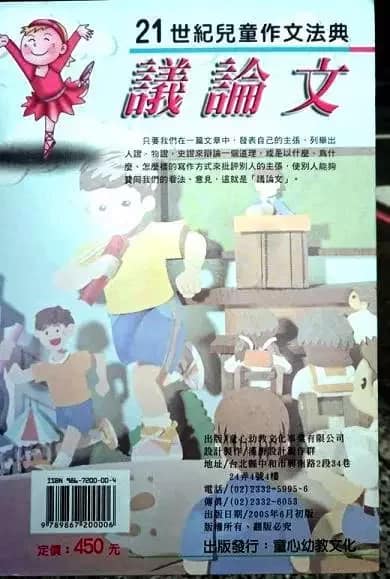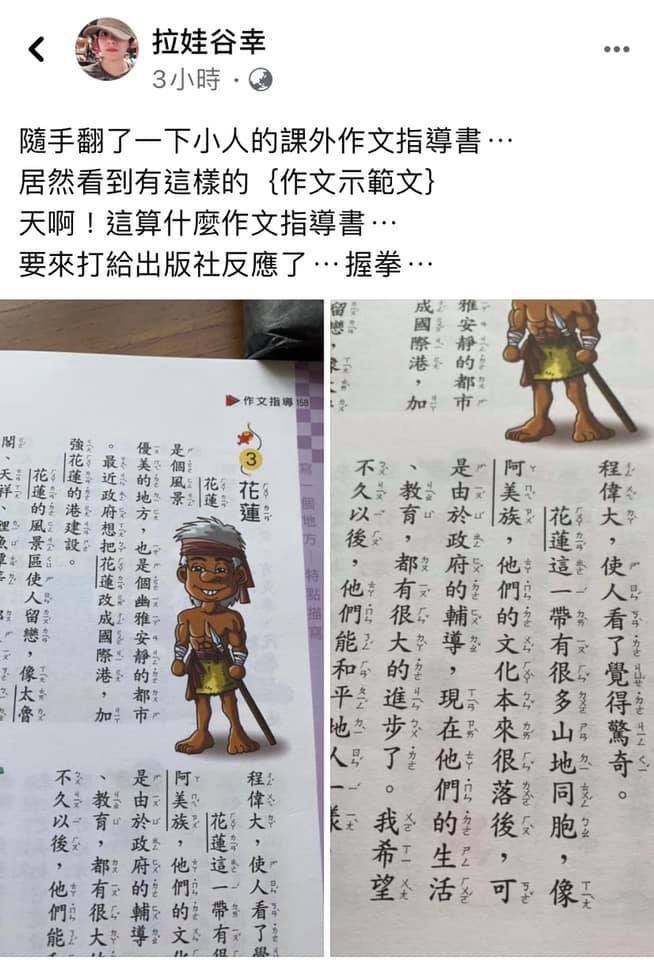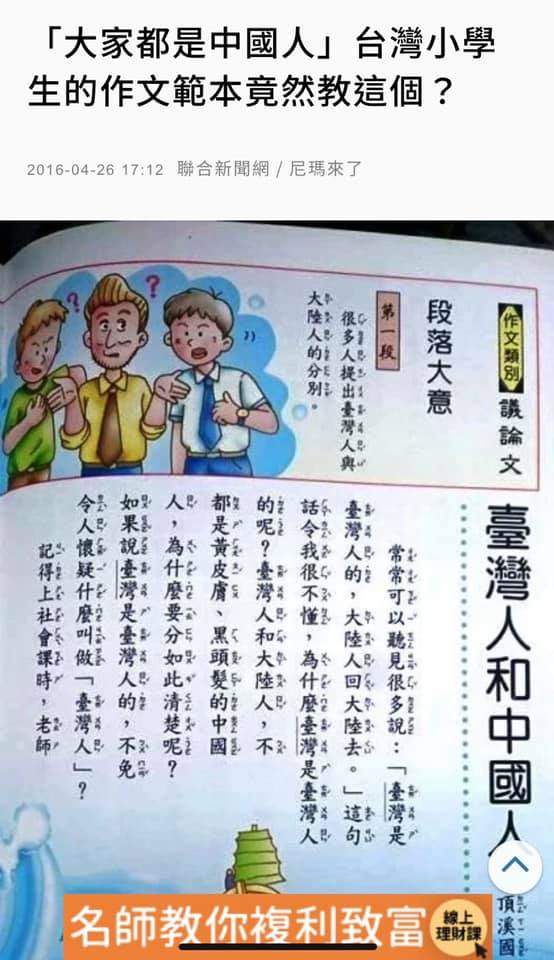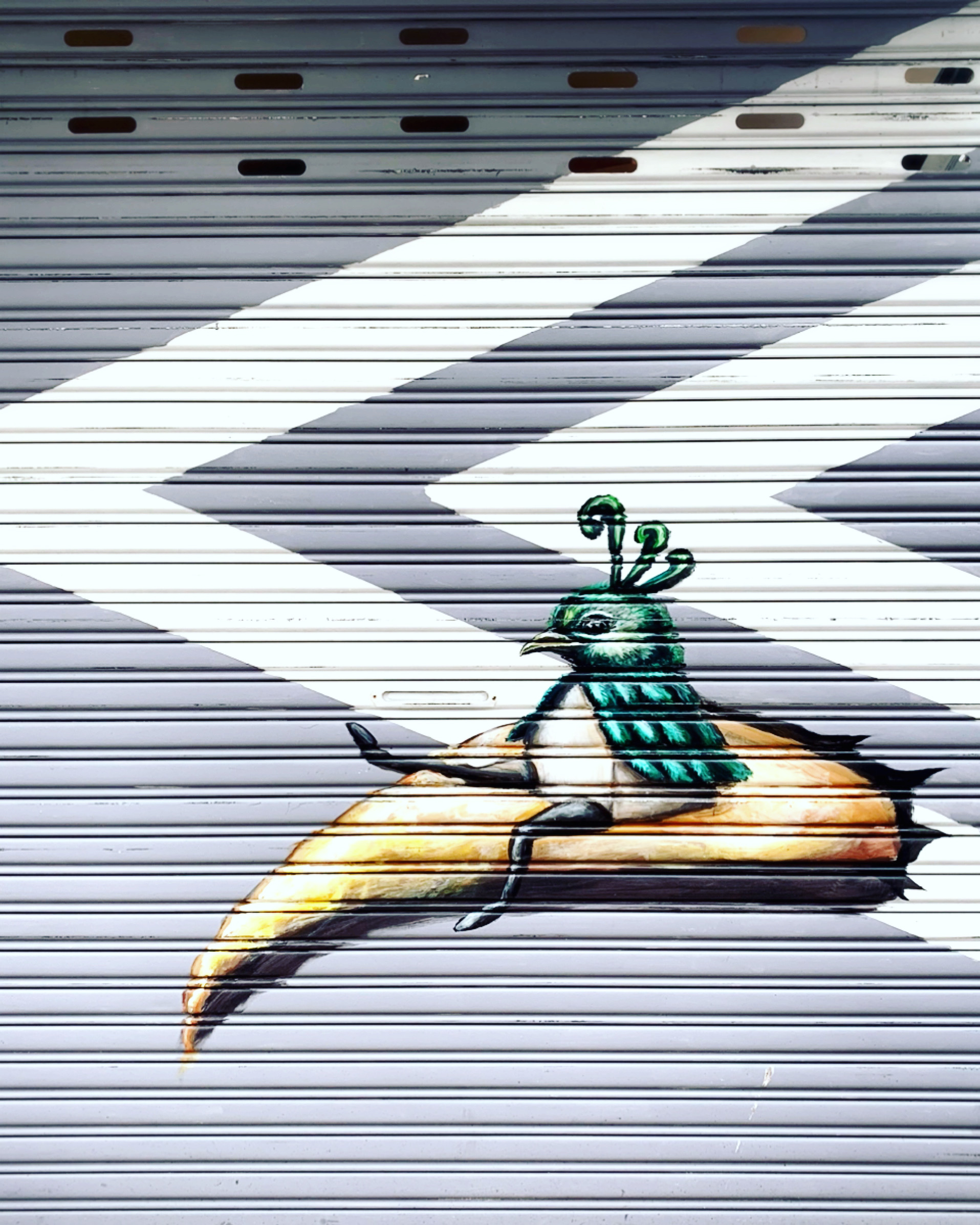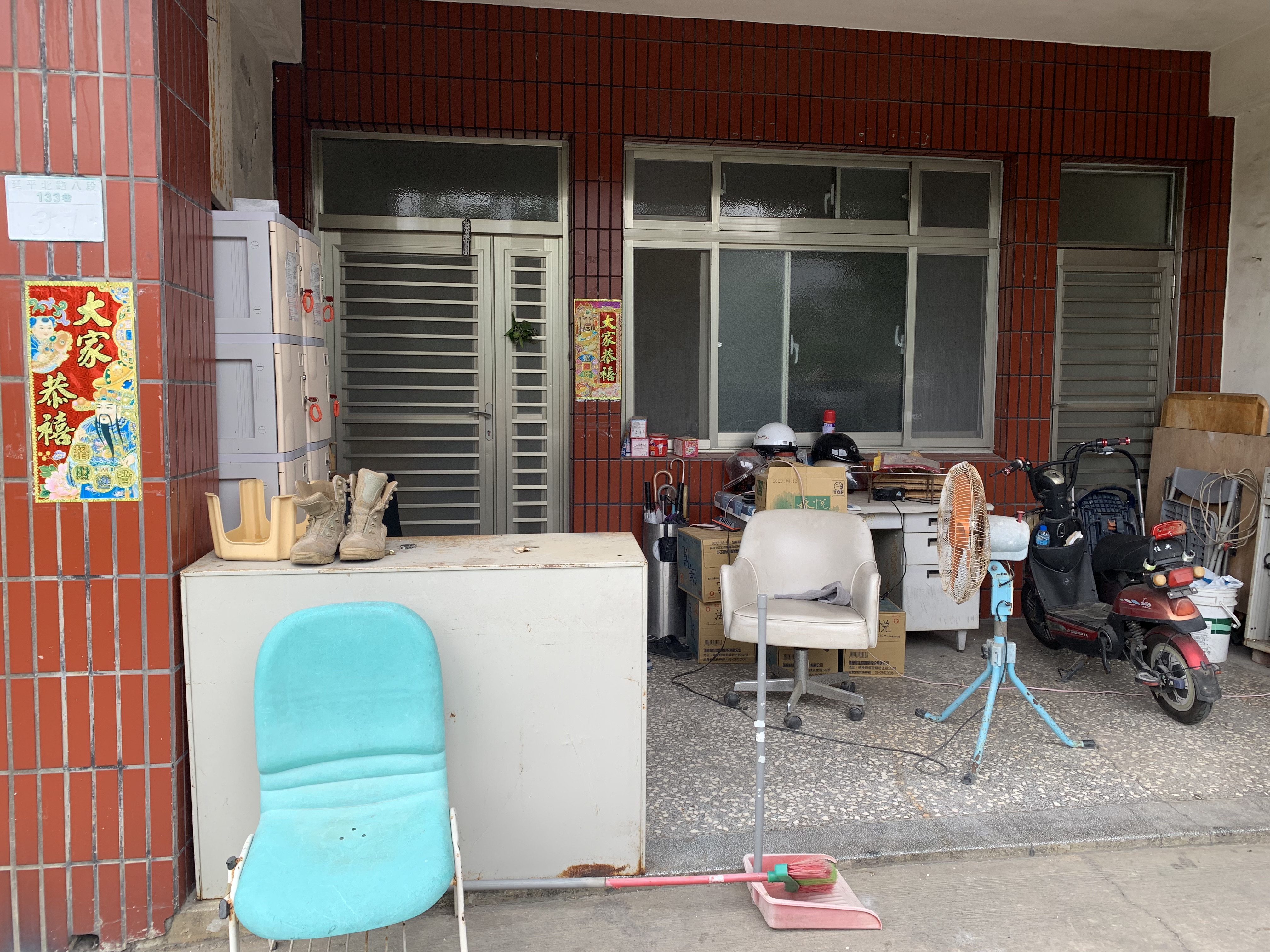I don't take much pleasure in completely tearing apart an episode of ICRT's Taiwan This Week, which I listen to most of the time (it depends on the guests). I was tipped off, however, that this week's episode turned into a vector for disinformation -- much of which I've already dealt with -- and felt like I had to give it a listen and say something.
Friends, it is dire. (This may not appear correctly with people on phones, you might also be able to get to Taiwan This Week by scrolling here or through your podcast app. The episode in question is Golf But No Swimming).
Bad enough that I'm surprised Gavin didn't intervene to correct some of those points.
I'm a little angry. Just so you know.
Let's deal with all of the bad takes and straight up misinformation as they come along.
"A mishmash or mismatch of science -- packed MRTs but you can't go to the beach"
Frankly, it's true that it probably is safer to go to the beach than be on a crowded MRT, but no, this is not bad science. You can't wear a mask the entire time you are at the beach (try going into the water with one -- weird, huh?) and the Delta variant is so highly contagious that this is a problem. Ralph is also correct when he responds by pointing out that beaches aren't highly regulated: you can't really stop all people from disobeying the rules at all beaches.
The MRT, however, is an essential service. People still need it, so it makes sense that that would remain open, but beaches would be closed.
If matching up the science matters (and yes, it does), restaurants and cinemas are more dangerous than beaches as they're indoors, and one should still avoid them. However, relaxing the restrictions on restaurants as long as they follow certain protocols can help avoid a catastrophic series of restaurant closures and economic turmoil. That's not true for the beaches.
In other words, it's not a "mishmash", it's a series of decisions based on what is essential to either people's lives or the economy. In that light, you may not agree with every choice the government makes. I certainly don't, I say open up the outdoors where masks are possible (yes to hiking trails, tracks etc., probably no to beaches and playgrounds -- city parks are already mostly open, just not sheltered seating areas within them), but not cinemas or restaurants. Do allow outdoor dining. However, the government's choices have some kind of logic behind them. It's reasonable to disagree, but it is not random or inexplicable.
"They're saying China interfered but they're offering no proof of that. We know the real story here, and what will get us to that 60% level is the government's hope hope that the locally vaccines will be approved for use very quickly, and that's why they were slow in purchasing. They didn't want to get stuck spending a lot of money on foreign manufactured vaccines which are a lot more money than the locally-made product, so they didn't move quickly to buy, and other countries did sign contracts and were able to buy vaccines. We all know that's what happened."
Did TVBS hire an English-speaking talking head? Because this is what it sounds like.
First, the Taiwanese government was not slow to purchase vaccines -- the only data anyone's been able to show on this is when the contracts were signed, not when negotiations for those contracts began. And it seems to me from the timing of those contracts that the Taiwanese government started to attempt to buy foreign vaccines as soon as it was able. What's more, they bought millions of doses. So what are you even talking about?
They don't need to prove that China interfered, because China itself is providing plenty of proof. Every few days or weeks, depending on the news cycle, some CCP-approved drivel comes out about how Taiwan must buy BNT from a Shanghai Fosun, and that's why they can't buy from BNT directly. China openly says so! What more proof do you need that China is interfering in the purchase of that particular vaccine?
In fact, it's easy to prove this, as Fosun refuses to apply to the Taiwan FDA to distribute German-made vaccines, and yet keeps squealing about how it has the rights to the Taiwan market. They keep saying they want to sell to Taiwan, but won't take the government-mandated steps to actually apply to do so. And yet, they are willing to negotiate with pro-China Terry Gou.
What more proof do you need? Taiwan doesn't need to give it to you, because China already has.
By the way, from my knowledge of how these sorts of negotiations work -- which is more than you'd expect as I've worked with people at relevant pharmaceutical companies -- knowing that your negotiations had been interfered with and having hard evidence of that are two different things. It's not like the Taiwanese government would have access to a phone call between a Chinese state actor and a BNT executive aggressively incentivizing BNT not to sell to Taiwan. But, they'd know through various contacts and channels that that is, in fact, what took place.
What on earth makes anyone think China wouldn't do that? Of course they would! They pull this crap on Taiwan all the time. So it's a bit disingenuous to just not believe the government when they say they had thought they'd reached an agreement with BNT, only to have it fall apart on BNT's side at the last minute, and it's fairly clear why that would happen.
To that end, there's also no proof that Taiwan pulled out of the negotiations because the doses were "too expensive" (it's possible the earlier negotiations via third party companies did, but it's unlikely a direct government-to-manufacturer negotiation would). There is plenty of circumstantial evidence that BNT was the one who scuppered the deal.
And why would they do that? Why would you blame Taiwan for it?
For the other vaccines, Taiwan actually did order a huge amount, so it's clearly not about money. However, they seem to be receiving them slowly due to the global shortage. That's not Taiwan's fault.
This is true for every country except the US, which has enough to go around. It's just plain fake news to make it sound like the rest of the world is getting vaccinated while Taiwan is not. Most countries one might reasonably compare to Taiwan do indeed have higher vaccination rates, but those countries didn't have to deal with China blocking their access to vaccines. Even those countries, however, are struggling to get to even 50% of the population with at least one dose:

Friends of mine from Europe to Canada to Australia are talking about how they're still waiting their turn, or have only gotten one dose -- it's not that different from Taiwan.
Here is what we should all know: Taiwan did its best to purchase foreign vaccines, but the government made two accurate predictions: first, that there would be a global shortage. This is true. Second, that due to such a shortage and Chinese pressure, they would also need to develop a local vaccine to meet its goals. This is also true.
It's also not fair to make it sound like Taiwan needed those donations for financial reasons. They needed them because the foreign vaccines they did purchase -- millions of doses! -- were slow to be delivered, and an outbreak was making that situation critical. In the meantime, China and the KMT were using that gap between outbreak and vaccine delivery to pump as much fake news into Taiwan civic discourse as they could. It had nothing to do with money, so please don't imply that was the case.
If anything, it was also a series of political moves aimed at showing China that the US and Japan do in fact take Taiwan seriously and will step in to assist this country.
There's nothing nefarious about it, unless you get your hot takes from pan-blue political talk shows.
"There's a public perception that [the Chinese vaccine] an inferior product...on the off-chance that it were to be approved because it's been proven safe and effective in other countries so there's a lack of a medical or scientific justification to prohibit it, by the time that happens it's sufficiently far enough into the future that other vaccines will be available to Taiwan."
This is actually fairly true: Taiwanese don't want the Chinese vaccine. But the fact is that even if it were proven "safe and effective", it doesn't matter as drugs made in China are banned in Taiwan. So that would require an entire law change.
However, it's highly inconclusive that it is indeed safe and effective (to be fair, Ralph does not say it is proven). As I've written before, data on the Chinese vaccines are highly inconclusive.
"When you go back, you have to do a wicked quarantine. My understanding is it's every person per room. Even children in their young teens need to sit in their own room, I don't know how they're going to do that, without any human contact except someone in a face shield who delivers meals."
The fact that the quarantine is strictly enforced now is true, but the rest is false.
There was a big swirl of fake news about this in certain circles where people were screeching about how their children would be "taken from them" and forced to quarantine separately. It sure caused many clutchings of pearls. Brand-name pearls, too!
From my post on the issue:
[The article and press release imply] that parents may have to pay for the quarantine of children over age 12, but it says nothing about them being quarantined separately.
This is preposterous on its face. Think about it: do you honestly believe the Taiwanese government would require that 13-year-olds quarantine separately from their parents? Is there any evidence beyond one poorly-worded article that there were ever official rules stating this?
Because this is still getting traction, however, someone called 1922 and their answer was a very clear "obviously not". Children 18 and under can quarantine with parents (I don't know if they are required to, or if you'd be allowed to arrange a separate room for your 16-year-old who will probably be just fine without you. I don't think it matters.)
Please stop spreading this. It is fake and, well, surprising that people still believe it.
"I think the government wants to avoid or limit the amount of discussion about why aren't there more vaccines available in Taiwan so they're imposing the quarantine requirement on people who are returning who are vaccinated. You can debate whether the science justifies or necessitates that, but it certainly will put a downward pressure on the take-up rate to do this...it's going to be one more factor people are going to consider and...will decide it's not worth the hassle. So you have fewer people walking around Taiwan talking about 'I went to Guam and you didn't, I got vaccinated and you didn't, so by imposing these restrictions, even if they might not be necessary, you reduce the number of people who are going to do it, and you maintain some fairness in Taiwan society....as ridiculous as all of this might sound."
This is only half-true. The government is not doing this to "limit discussion of why there aren't more vaccines in Taiwan", because literally everybody is talking about that. They couldn't limit it if they tried.
Yes, the science does back it up: vaccinated people can still be carriers and we still don't know how well each vaccine works against the Delta variant. Families can infect each other at different times, especially if one is an asymptomatic carrier.
But that the government wants to deter travel is true. Just not for the reasons Ralph is suggesting. Rather, travel is a huge vector for infection spread, so the government doesn't want you to do it. Frankly, it's good that it's working. It makes sense to deter people from traveling. That didn't stop the pearl-clutchers from crying about these unexpected return quarantine expenses because they chose to gamble on non-essential summer trips, however.
Additionally, to travel one needs a PCR test, and most hospitals won't or can't turn away self-paid PCR requests. That means lines are long, as are wait times, and medical professionals are tired and overworked. A doctor friend of mine said just the other day that the staff at her hospital is sick and tired of privileged ABCs coming in demanding tests for non-essential travel, when people with more immediate needs require those tests as well. (If it makes you feel better, the hospital staff absolutely do ensure those with a true need get both the test and result quickly, and the Taiwanese with US passports hoping to fly out at their leisure are indeed expected to wait.) It's a strain on the system, and smart to deter this for public health reasons, not to quash discussion.
Seriously, do you guys honestly think the Tsai administration is composed of monsters out for their own self-interest, ready to let Taiwan burn as long as they get their way? If so, I am sure you could both get spots on 中天's Youtube channel as talking heads. Right now you sound like you're perfect for the job.
"It's mind-boggling that Taiwan is scrambling to get this [vaccination effort] together."
I'm sorry, but I don't find it to be nearly as incompetent as Ross is making it sound. It's true that some older people are struggling with the technology, but ultimately, anecdotally, people I know are ensuring their parents get registered and vaccinated or are signing up themselves if they're in a priority group without nearly the same amount of confusion as in the early days of the US program.
I remember my brother-in-law in the US pointing out that for his parents (my in-laws), it was a fairly straightforward process to sign up and go get vaccinated. He, however, had to wait months just to hear about whether he would be able to sign up, with absolutely no notification or clarification from the government. Now, of course, anyone can because the US is flush with vaccines, but that was what it was like in the early months. It's like people have selective amnesia about this.
For me, I was one of the lucky self-payers, and got my first dose before the program was shut down. (That program, by the way, was a very smart way to ensure those vaccines got used back when people thought there was no rush and didn't want AZ). I was given an appointment for my 2nd dose. That was cancelled due to changing recommendations on when to get the 2nd dose, and a new appointment was texted to me soon after. I'll be going in on the 22nd, and NTUH arranged it all without a hitch.
I'm sorry, but I just don't see the incompetence or the scramble. I wouldn't call the vaccine rollout perfect, but it's not the shambling mess they're making it out to be.
"The Taiwan government perhaps rather passively and unknowingly, they just never figured this shit out. They just...quarantines and tracing and border controls were gonna solve this until the very end of COVID. They were always talking at a higher level: when this is over we're gonna open the borders, when this is over...they were always talking as if this was never gonna hit Taiwan. So they never prepared for it."
Oh, shut up man.
Most countries that did see a big outbreak would be thrilled if they'd been able to contain it the way Taiwan has. If they "never figured this shit out", then how did Taiwan crush the outbreak it did have faster and I would say more effectively than just about anywhere else (except, perhaps, New Zealand)?
Taiwan has also done a better job of contact tracing than the US, and Taiwan locks down when it has numbers that the US thinks are good enough to open back up with. If any given county had the number of daily cases Taiwan had at the peak of its outbreak, they'd celebrate and re-open everything -- in fact, many are doing just that.
And yet, people seem to think Taiwan's handling of the outbreak has been poor. It has not. It's unfortunate that it happened and no government is perfect, but we crushed it a lot faster than just about every other country.
I stole these graphs from a Facebook friend (you know who you are) who used the same Our World in Data site that I linked to above. As you can see, it's not even close. Yes, Taiwan had an outbreak. Yes, poor rule enforcement was part of it. The government made some mistakes. But, it's still not close. Does this look passive to you?



As my friend pointed out, the only hard choice is New Zealand. Would you want the lower overall case spike of New Zealand, or the months of security of zero cases in Taiwan? It's hard to say.

* * *
I'm going to be honest, this is where I stopped listening, because there's only so many bad takes I can handle. I don't know if the rest of the program was filled with more bad analysis, and I don't care to know.
All I can say is, do better next time. Some of the assertions in this episode are just a trashfire of stinky hot takes. Some are straight-up disinformation: literally fake news. That's not okay.
And if you really dislike Taiwan so much that you want to make it look like it's a bumbling mess, governed by bellends, "passive" and "can't get its shit together", refusing to see the obvious fact of Chinese attacks on Taiwan over its outbreak and the vaccine issue, then maybe look at the data before you go on ICRT and bloviate like you run the KMT Twitter account or something.

